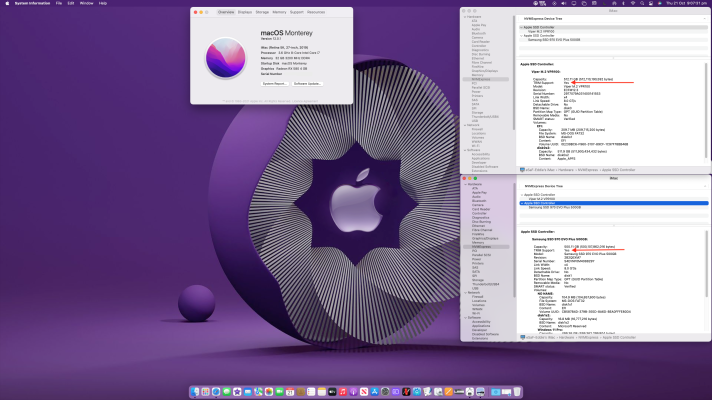- Joined
- Mar 9, 2012
- Messages
- 2,894
- Motherboard
- MSI Z490 TOMAHAWK MAG
- CPU
- i7-10700K
- Graphics
- RX 580
- Mac
- Mobile Phone
Where did you read that about TRIM damaging NvME Drives if disabled? You do realise that if not all, most modern drives has their own builtin garbage collection software (TRIM) in the firmware so it is hardly necessary to install a third party TRIM solution.Yeah. Definitely a TRIM issue related to Monterey and Evo 970 Nvme. As far as I know you never should disable TRIM, otherwise you can damage your nvme-ssd.
I have two M.2 drives in my system Monterey on one and Windows 11 on the other and as you can see both drives has TRIM activated and that is without any input or deliberation on my part.
Both drive boot times are 15 - 20 seconds to reach desktop.
Slow boot times can be attributed to other problems i.e out of date kexts etc, etc. The easiest way to determine slow boot is to invoke verbose mode and see exactly where the boot is hanging.

